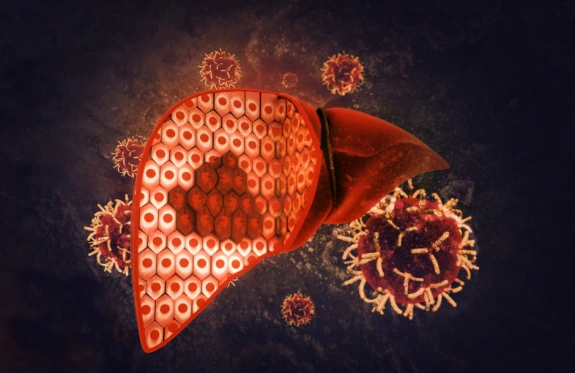
Liver cancer originates in the cells of your liver. Various types of cancer can develop in the liver, with hepatocellular carcinoma being the most common, arising from the primary liver cell type, hepatocyte. Liver cancer occurs when the DNA of liver cells undergoes mutations. DNA serves as the blueprint for all chemical processes in the body, and mutations lead to alterations in these instructions. Consequently, cells may start to proliferate uncontrollably, culminating in the formation of a tumor—a cluster of cancerous cells. While chronic hepatitis infections can sometimes be pinpointed as the cause of liver cancer, in other cases, the cause remains unknown. Liver cancer can manifest in individuals without underlying diseases, and the precise cause may not be apparent.
Risk factors that increase risk of liver cancer include:
Chronic Hepatitis C Infection
Chronic Hepatitis B Infection
Cirrhosis
MASLD - Metabolic Dysfunction-Associated Steatotic Liver Disease
MASH - Metabolic Dysfunction-Associated Steatohepatitis
Excessive Alcohol Consumption
The majority of liver cancers are actually presenting without symptoms. In fact, they are usually found incidentally on an abdominal ultrasound, CT scan, or MRI for other intra-abdominal diseases.

